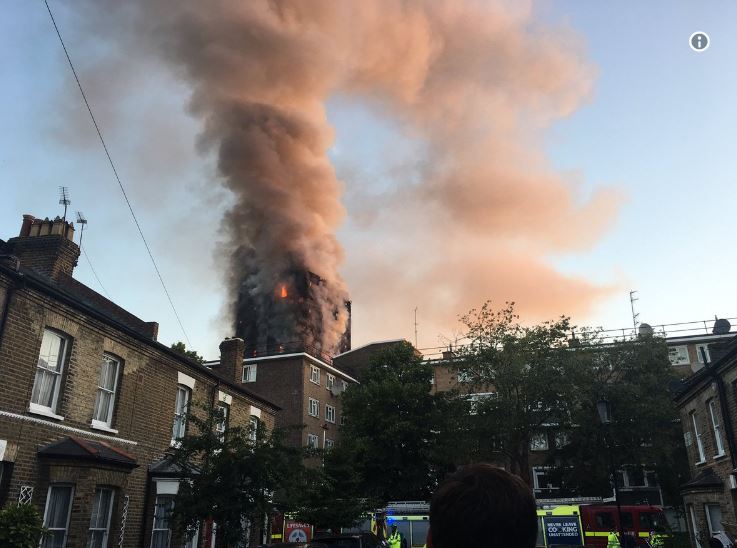We have a right to be very angry at the news about Grenfell Tower.
I regularly sit in meetings with fire safety professionals, and their fury and frustration at the inaction of local councils and social landlords is palpable.
We have been warning about the risks of a fire like this for years. ‘What we need to get people to take notice is a huge fire in a tower block’ they say. Well, here it is.
There is an endemic fire safety problem in this type of housing stock. I have walked around tower blocks documenting and filming the fire safety breaches.
I’ve seen flats without fire doors, no emergency lighting or signage on fire doors and escape routes, broken fire rated glass, wedged-open fire doors, poor fire stopping around service hatches that breach compartmentation, no smoke seals in fire doors, rubbish and combustible material left in the common areas, and no information displayed on the specific fire plan of the building.
#Grenfell Tower floor plan. "Improved" high density layout means one set of stairs for 24 stories of 120 apartments. #LondonFire pic.twitter.com/MHV3adB5Q7
— Mark Ashley (@themarkashley) June 14, 2017
Deaf ears
But that information appears to fall on deaf ears. Action must be taken now to address these issues.
Our hearts go out to the residents of Grenfell Tower, their neighbours, friends and families, and the extraordinarily brave fire fighters and medics who are continuing to deal with the emergency.
And to every local council and housing association I say, you know what to do, take action today. The next one could be tomorrow.
More than half of all tenants (58%) and over 70% of lower income tenants have no idea who the ‘Responsible Person’ is for the building where they live
Research for Fire Door Safety Week last year underlines some of the problems, in particular showing that the poorest in society continue to be at greatest risk from fire, with lower income tenants more concerned about fire safety where they live, less informed about how to protect themselves, and less able to move away from perceived danger.
Just a third (35%) of the lowest income households renting flats say they have been given information on the emergency fire plan for the building where they live, compared to 88% of tenants on incomes over £100,000 a year.
Those on incomes of £25,000 or less are much less likely to feel completely safe from fire (27%) than those on incomes above £80,000 (44%).
But two out of every nine (22%) households with incomes under £25,000 living in rented flats who have concerns over fire safety are unable to move because they can’t afford to.
More than half of all tenants (58%) and over 70% of lower income tenants have no idea who the ‘Responsible Person’ is for the building where they live – the person to whom they should usually report their fire safety concerns. And worryingly, 15% of all tenants living in blocks of flats who have got fire safety concerns have never reported those concerns to anyone at all.
Subscribe to the IFSEC Insider weekly newsletters
Enjoy the latest fire and security news, updates and expert opinions sent straight to your inbox with IFSEC Insider's essential weekly newsletters. Subscribe today to make sure you're never left behind by the fast-evolving industry landscape.
Sign up now!

